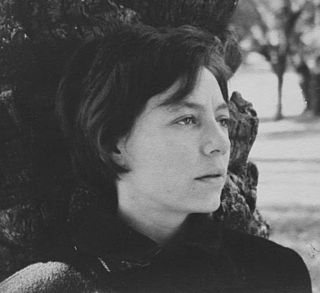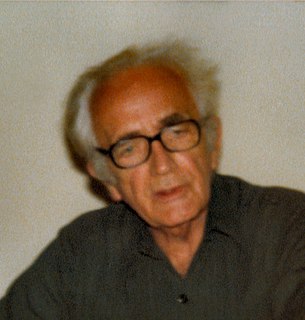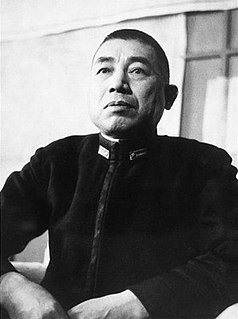A Quote by Yukio Mishima
He had never looked forward to the wisdom and other vaunted benefits of old age. Would he be able to die young—and if possible free of all pain? A graceful death—as a richly patterned kimono, thrown carelessly across a polished table, slides unobtrusively down into the darkness of the floor beneath. A death marked by elegance.
Related Quotes
I yearn for the darkness. I pray for death. Real death. If I thought that in death I would meet the people I've known in life I don't know what I'd do. That would be the ultimate horror. The ultimate despair. If I had to meet my mother again and start all of that all over, only this time without the prospect of death to look forward to? Well. That would be the final nightmare. Kafka on wheels.
But, who is Death? A figure that harrows and wastes wherever and however it pleases. This is also a possible description of the Countess Bathory. Never did anyone wish so hard not to grow old; I mean, to die. That is why, perhaps, she acted and played the role of Death. Because, how can Death possibly die?
[Speaking] is never without fear; of visibility, of the harsh light of scrutiny and perhaps judgment, of pain, of death. But we have lived through all of those already, in silence, except death. And I remind myself all the time now, that if I were to have been born mute, and had maintained an oath of silence my whole life for safety, I would still have suffered, and I would still die.
So to be sick unto death is, not to be able to die-yet not as though there were hope of life; no, the hopelessness in this case is that even the last hope, death, is not available. When death is the greatest danger, one hopes for life; but when one becomes acquainted with an even more dreadful danger, one hopes for death. So when the danger is so great that death has become one's hope, despair is the disconsolateness of not being able to die.
The boy was lying, fast asleep, on a rude bed upon the floor; so pale with anxiety, and sadness, and the closeness of his prison, that he looked like death; not death as it shews in shroud and coffin, but in the guise it wears when life has just departed; when a young and gentle spirit has, but an instant, fled to Heaven: and the gross air of the world has not had time to breathe upon the changing dust it hallowed.
There is another side to death. Whether death happens through an act of violence to a large number of people or to an individual, whether death comes prematurely through illness or accident, or whether death comes through old age, death is always an opening. So a great opportunity comes whenever we face death.



































